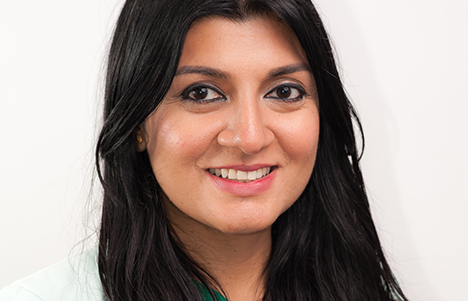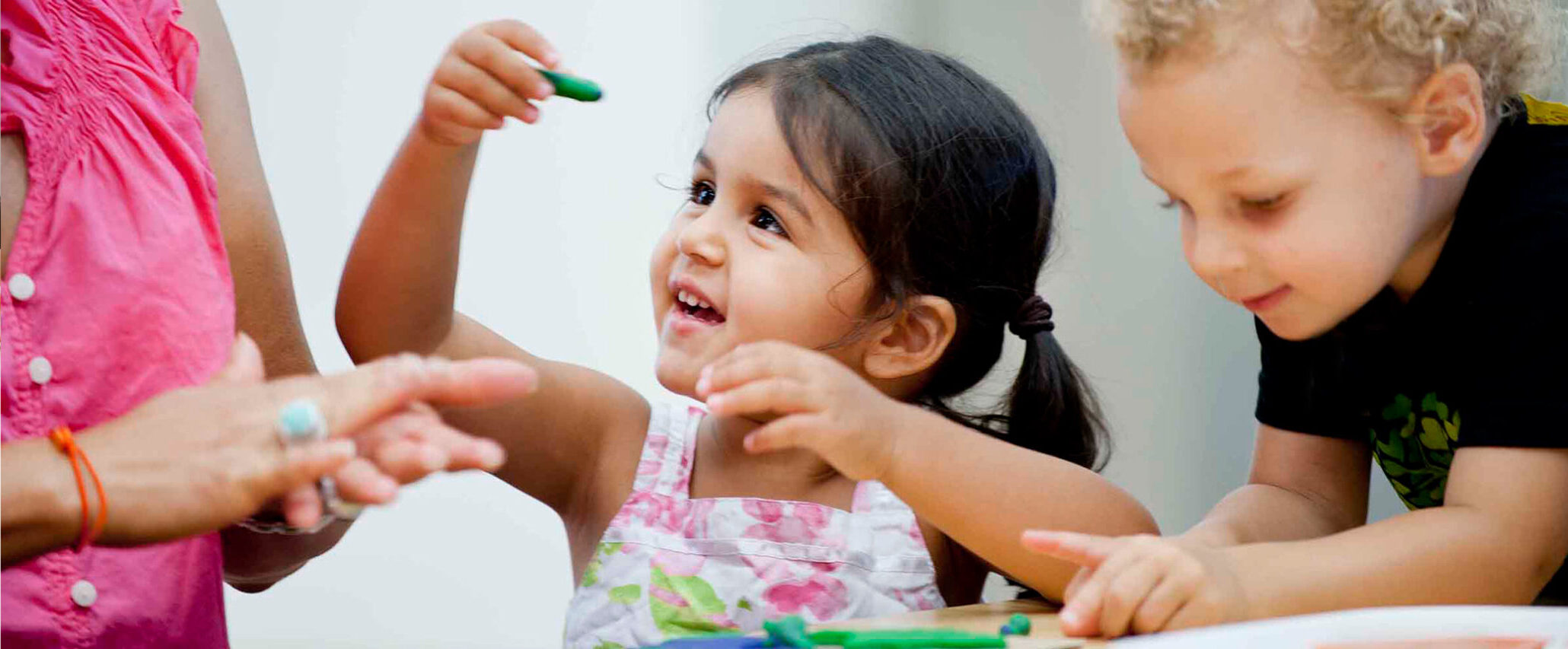
This blog post is written by mindfulness teacher and neuroscience researcher, Ayman Mukerji Househam, who is leading a family mindfulness workshop at the Rubin in November.
Happiness is not an end goal. It is a state of mind, accessible to us at every moment. A prescription to attain this mental state is mindfulness practice, which entails deliberately observing the present moment without judgment. With a regular practice, we learn to respond rather than react to life situations.
With our own mindful state, we start transforming those around us in a similar direction. A family living in a collective mindful state results in a harmonious, peaceful, and balanced life. Together, we learn to surf the waves of life.
Creating a mindful family unit needs conscious, concerted effort. The good news for those of us willing to try it out: our biggest “gurus” are right amongst us”“our children. Kids are born with an innate sense of presence. Seeing the world through their senses is fun, and also helps strengthen our bonds immediately. Practicing mindfulness as a family thus becomes a joyful experience.
Ready to get started? Here are five tips on how to begin living as a mindful family:
1. Establish your own mindfulness practice.
Come up with five minutes a day to practice mindfulness. It could be a seated meditation first thing in the morning, before bedtime, or even while taking a shower. Practice it every day. The key is to focus on all your senses while observing your breath; accept your thoughts and let them go without judgment. Think of this as a daily workout for your mind, so you are prepared to face the world without being overwhelmed.
2. Practice “special playtime” with your child.
Carve out five minutes a day, at least five days a week, to play mindfully with each child in your family. During this time, take their lead! Use targeted praise for every little thing they do and refrain from using commands. While kids know how to be mindful, this experience encourages them to keep at it while teaching us how to accept them for who they are.
3. Practice self-love.
Take every opportunity to have time to yourself. Prioritize it—even when your plate is full. Learning to know and love ourselves allows us in turn to be less judgmental to our life situations.
4. Use empathy when others aren’t at their best.
Everyone has bad days”“our partners, kids, and us included. When things heat up, put yourself in your family members’ shoes and accept the difficulties of that moment. Detect stress in your body before it triggers mental stress. Model the behavior that you expect from others when you’re having a rough time.
5. Use calm-down time.
Techniques like deep breathing and creating personal space are good ways to get discomfort out of our systems. If you are outdoors or in public when your child has a tantrum, prioritize safety and then find a safe spot to help the child practice calming down. Remember, it is not to be used as a punishment but to teach the child self-regulation. These same solutions can be applied to adults!
These tips should get you started on your path to making your family more mindful. To learn more and practice these techniques, join me on November 13th 3:00-4:00 p.m. at the Rubin. Bring your kids along and we’ll develop mindfulness together!
About the Author

Ayman Mukerji Househam is a mindfulness teacher and neuroscience researcher at NYU Langone Medical School. Her work focuses on the benefits of mindfulness for families. Househam’s publications show the benefits of a regular mindfulness practice on the brain and general well-being. She is finishing a publication on the neuroimmunological and gut microbial changes associated with a stress-free life. Househam has worked with pediatric patients with autism spectrum disorder and ADHD, a topic she elaborates on in another upcoming book. Her approach toward building mindful families blends mindfulness techniques of the East with parent-child-interaction therapy of the West.
A mindfulness practitioner for the past twenty years, Househam practices mindfulness with her own family of four.

